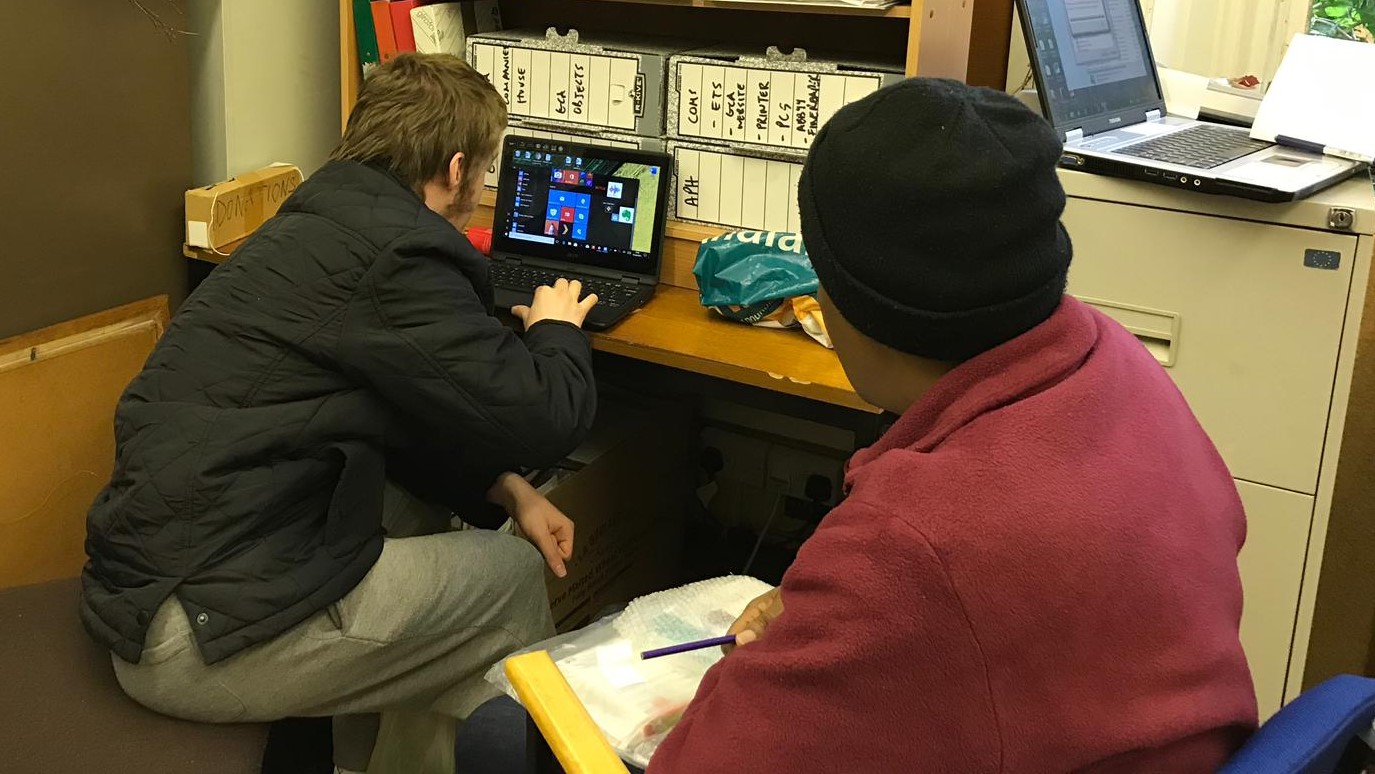A Direct Payment (sometimes referred to as a Personal Budget) is the sum of money the council assesses that you require so that you can meet your care and support needs.
Personal Budgets are available across the UK and to everyone requiring support including carers, disabled children and people who lack mental capacity.

How do I get a Direct Payment?
- If you or someone you care for needs help at home, you can contact Social Services to request a Community Care Assessment (or Child in Need Assessment for under 18s).
- Local Authorities have a responsibility to carry out that assessment when requested. However, they are not obliged to provide support.
- Support is agreed if the social worker carrying out the assessment decides you or your loved one has an eligible need.
- The payment granted must be enough for you to purchase support or services to meet those needs.
- The money given can only be spent on support or services that meet those eligible needs.
- When an eligible need has been agreed, you are entitled under the Care Act (2014) to have a Personal Budget to meet your needs
How can I manage a Personal Budget?
1) Direct Payment: your local council pays your personal budget funding into your bank account or a separate bank account held by an organisation nominated by you. If you choose to open your own bank account you are responsible for making all payments to those providing your support.
If you choose to have a Managed Account, the money you receive is paid into a bank account managed by an independent agency (like IBK), which will pay any costs incurred. The agency would pay your PA wages, and/or any invoices relating to your assessed care needs.
Whether or not you opt to have an agency looking after the funding on your behalf, the direct payment is to enable you to buy your own support. This may include hiring a Personal Assistant (PA).
A direct payment gives you have full control and choice over who provides your care. You decide who works for you, when and how. If you choose to employ Personal Assistants, you take on responsibilities as an employer.
2) An account managed by the council (as indirect payments): the council will manage your budget and will commission services on your behalf. You can have a say in who provides those services.
3) An Individual Service Fund (ISF): the local authority pays an organisation that provides support services and will follow your instructions in getting the services you need. The organisation will be answerable to you. You will have a say about how and when services are provided to you.
Financial Assessment
For people over the age of 18, Direct Payments are means-tested so their value is dependent on a person’s income and assets as well as their eligible needs. If you are over 18, and are assessed as being eligible for support from your local council, you will then have a ‘Financial Assessment’. This is where your local council will ask about your finances and income to work out how much you will contribute to your care.
The means test is when the local council looks at your income, savings and property to calculate how much you need to contribute towards the cost of your care and support.
(If you need care in order to stay in your own home, the means test won’t include the value of your property. If you need to move permanently into a care home, the test will usually include the value of your property.)
After the means test the local council should give you a written record of their decision of what you will have to pay and what they will pay, and how they calculated it.
How much you will have to pay will depend on:
- the type of care and support you need.
- the area you live in (as costs may vary across the country).
- your own personal circumstances.
The value of your home is not taken into account when working out how much you have to pay.
Costs that are specific to your impairment (e.g. dietary needs; additional laundry expenses; exceptional clothing expenses, etc) are offset against your income and will be taken into account. These costs are known as Disability Related Expenses.
Each local authority should publish and make available details of its charging policy for home care, how they work out how much to charge you and how much as a minimum income you are allowed to keep for your own use.
For more information about these options and about Disability Related Expenses, see: https://www.disabilityrightsuk.org
What is a Personal Health Budget?
A personal health budget is an amount of money to support the identified healthcare and wellbeing needs of an individual, which is planned and agreed between the individual, or their representative, and the local clinical commissioning group (CCG). It isn’t new money, but a different way of spending health funding to meet the needs of an individual.
Personal health budgets give people with long-term health conditions greater choice and control over the money spent on meeting their health and wellbeing needs. As with direct payments via social care, health budgets also bring with them greater responsibility for the person receiving care (or their representative).
A personal health budget may be used for a range of things to meet agreed health and wellbeing outcomes. This can include therapies, personal assistants and equipment.
Who is entitled to a Personal Health Budget?
Adults eligible for NHS Continuing Healthcare and children in receipt of continuing care have had a right to have a personal health budget since October 2014 and this became the default option for delivering care to those people eligible from 1 April 2019.
The right to have a personal health budget applies to people who are:
- adults receiving NHS continuing health care funding (This is NHS-funded long-term health and personal care provided outside hospital)
- children receiving NHS continuing healthcare
- adults with mental health problems who are receiving after-care as a result of being sectioned under the Mental Health Act
If you are unsure as to whether or not you are entitled to a Personal Health Budget, speak to your local clinical commissioning group (CCG). CCGs make the arrangements for personal health budgets and are encouraged to offer them to diverse patient groups.
How do I get a Personal Health Budget?
In order to see if you are eligible for a Personal Health Budget, an assessment of your needs will be carried out by health practitioners, using something called a National Decision Support Tool. This is intended to paint a picture of your needs across a range of headings (e.g. mobility, breathing, continence). You will be asked lots of questions from the support tool, and the answer to these questions determine a score or ‘weighting’ (for example, low, moderate, high, severe).
Importantly, the decision support tool is not a decision-making tool. The decision about whether you have a ‘primary health need’ will be made by relevant health professionals who interpret all the information gathered together. Therefore, it is not simply the number of high, severe or moderate needs which determine eligibility. It is using those scores to consider the nature, intensity, complexity and unpredictability of those needs.
For more information about Personal Health Budgets, please see: www.peoplehub.org.uk/wp-content/uploads/2017/01/ContinuingHealthCarePack1final-version.pdf
Can I have a Personal Budget via social care and a Personal Health Budget?
If someone receives a personal health budget and a personal budget for social care, it is possible to join the two budgets together to form a joint or pooled budget. This budget can be used to meet the desired outcomes from the support plan.















